
Women's Health Ultrasound
Latest News

Latest Videos
CME Content
More News
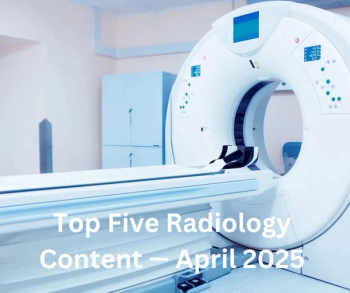
Catch up on the most-well viewed radiology content in April 2025.

Catch up on the top AI-related news and research in radiology over the past month.
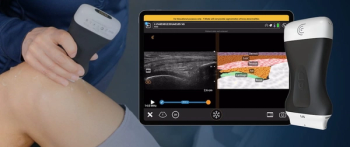
The T-Mode Anterior Knee feature reportedly offers a combination of automated segmentation and real-time conversion of grayscale ultrasound images into color-coded visuals that bolster understanding for novice ultrasound users.
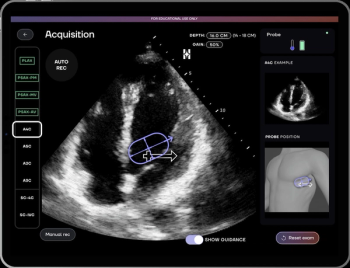
Recent research has demonstrated that the AI software HeartFocus enabled novice health-care providers to achieve greater than 85 percent agreement with expert sonographers in assessing echocardiographic parameters.
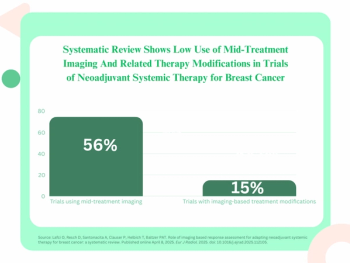
A systematic review of 147 clinical trials assessing neoadjuvant systemic therapy for breast cancer also revealed that mid-treatment imaging was utilized in 56 percent of the studies.
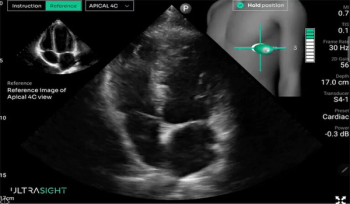
In a study recently presented at the American College of Cardiology (ACC) conference, researchers found that novice use of AI-guided cardiac ultrasound after an AI-enabled electrocardiogram increased the positive predictive value for reduced left ventricular ejection fraction (LVEF) or aortic valve stenosis by 33 percent.
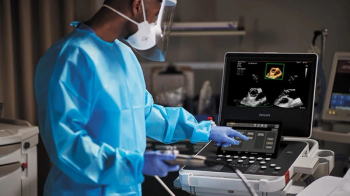
Artificial intelligence (AI)-powered measurement capabilities provide key features with the Compact Ultrasound 5500CV device, which was unveiled at the American College of Cardiology (ACC) conference.

Catch up on the top AI-related news and research in radiology over the past month.
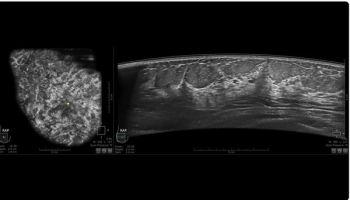
The Invenia ABUS Premium device reportedly offers consistent high-resolution imaging and up to a 40 percent increase in scan speeds for women with dense breasts.
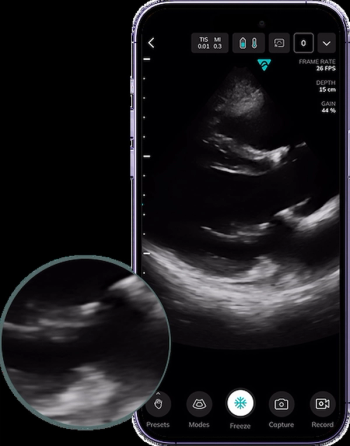
Emphasizing intuitive workflow and portability, the Universal Wireless Probe reportedly offers a cost-effective combination of phased and linear ultrasound imaging.
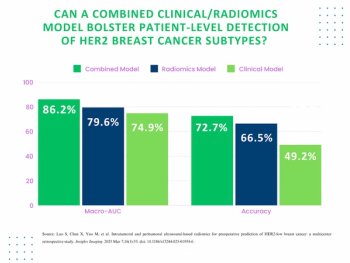
Multicenter research revealed that a combined model of clinical factors and ultrasound-based radiomics exhibited greater than a 23 percent higher per patient-level accuracy rate for identifying HER2 breast cancer than a clinical model.

Catch up on the top radiology content of the past week.
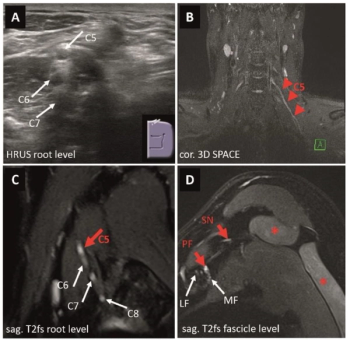
While high-resolution ultrasound offered nearly 10 percent higher specificity in the detection of upper extremity peripheral neuropathy, magnetic resonance neurography provided a nearly 23 percent higher sensitivity rate in a recent study.

Catch up on the top AI-related news and research in radiology over the past month.
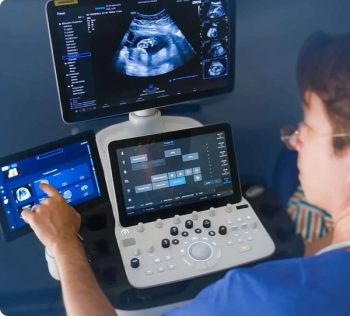
Recent multicenter research showed a 22 percent improvement in the detection of fetal anomalies with the Sonio Suspect AI-powered ultrasound module.

Catch up on the top radiology content of the past week.
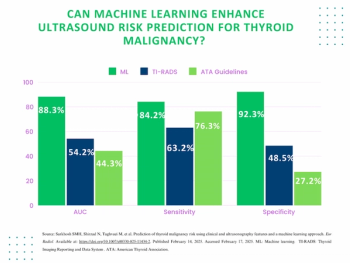
In a study involving assessment of over 1,000 thyroid nodules, researchers found the machine learning model led to substantial increases in sensitivity and specificity for estimating the risk of thyroid malignancy over traditional TI-RADS and guidelines from the American Thyroid Association.

Catch up on the top radiology content of the past week.
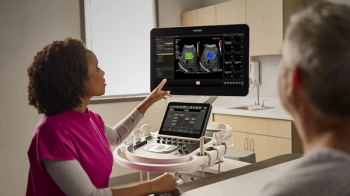
Offering an array of AI-powered automation and image optimization, the new Elevate software is geared to maximizing workflow efficiencies for the EPIQ Elite and Affiniti ultrasound systems.
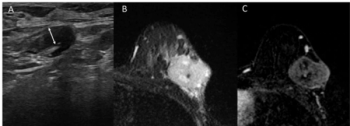
Anterior tumor location was over 14 times more likely to be associated with axillary metastasis after neoadjuvant treatment for breast cancer, according to new breast MRI and ultrasound research.

Phase 2 studies of the BR55 ultrasound contrast agent reportedly demonstrated a 95 percent accuracy in showing the expression of vascular endothelial growth factor receptor 2 (VEGFR2) in bowel segments reflecting active inflammation in patients with Crohn’s disease.

Emphasizing the role of radiologists in facilitating timely diagnosis of Marfan syndrome, Alan Braverman, M.D. discussed the use of echocardiography, CT, and MRI in evaluating patients with this genetic aortic condition.
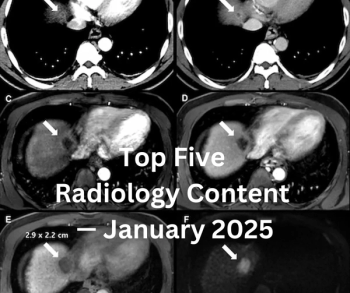
Catch up on the most-well viewed radiology content in January 2025.
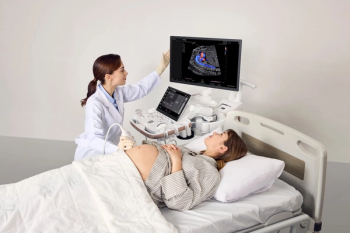
Designed for advanced OB-GYN applications, the Samsung Z20 ultrasound platform reportedly provides a combination of artificial intelligence (AI) tools and enhanced ergonomics.
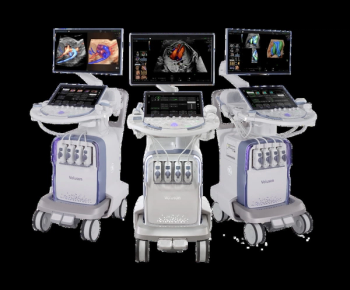
An array of AI-powered features and automated tools may lead to improved workflow and image quality with the Voluson Expert 22, 20 and 18 ultrasound systems.















